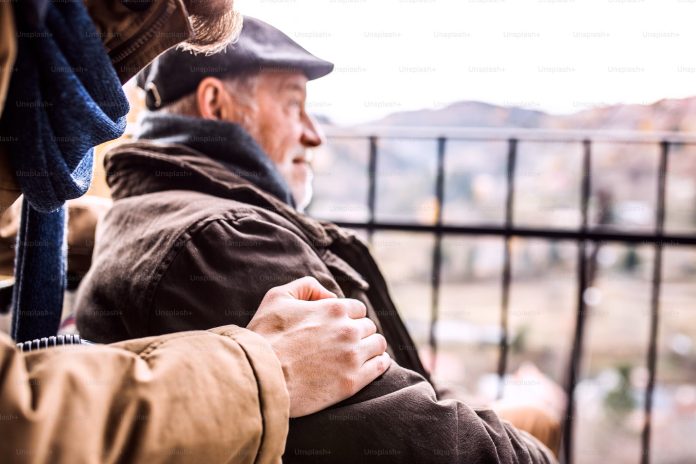Social work plays a pivotal role, especially in addressing the emotional and social needs of senior citizens. Students have a unique opportunity to make a meaningful difference in the lives of older people, helping to combat issues like loneliness and social isolation, which are prevalent in this demographic.
Managing academic commitments while volunteering can be a balancing act for students. In such cases, resources like essay writing service essayservice.com become valuable for handling academic tasks. This allows students to devote more time to their volunteer work, enriching their educational experience with real-world impact. Below, you will find recommendations for those eager to engage in geriatric social work and enhance socialization and well-being among older adults.
Volunteer Opportunities in Geriatric Social Work
There are numerous avenues for students to volunteer in elderly care. Here are a few examples:
- Visiting Elderly in Nursing Homes: Spend time with residents, engage in conversations, read books, or play games.
- Meal Delivery Services: Assist in delivering meals to seniors living alone.
- Community Workshops: Participate in or organize workshops on technology, arts, and other subjects of interest to the elderly.
- Health and Wellness Programs: Help in conducting or facilitating exercise classes and wellness programs.
- Senior Companion Programs: Be a companion to elderly individuals who need someone to talk to or accompany them on outings.
- Memory Care Activities: Engage with seniors suffering from memory-related illnesses through specialized activities.
- Skill-Sharing Sessions: Share your skills, like computer use or language learning, with seniors.
- Telephonic Support: Provide companionship and support to elderly individuals through regular phone calls.
Volunteering in these activities not only benefits senior citizens but also provides students with practical experience in social work. It is an opportunity to apply classroom knowledge in real-world settings, enhancing the understanding of the challenges faced by the aging population.
How Loneliness Affects Older Adults
Loneliness and social isolation are major issues affecting older people, often leading to serious health consequences. Student volunteers must understand the depth of these issues. Loneliness can lead to depression and even worsen other health problems like cardiovascular conditions. Therefore, the role of a social worker extends beyond mere companionship; it involves recognizing the signs of loneliness and implementing strategies to combat it.
Students can learn how social isolation affects mental health and develop skills to address these challenges. By initiating conversations, encouraging social interaction, and involving seniors in various activities, they can help mitigate the effects of loneliness.
The Role of Technology in Geriatric Social Work
Students can help older adults become more tech-savvy, enabling them to connect with their loved ones through digital platforms. Teaching seniors how to use smartphones, video call applications, and social media can greatly reduce their sense of isolation.
Besides, various devices can help monitor the health and safety of senior citizens. Students with a tech background can volunteer to set up and maintain systems like health monitors or emergency alert systems.
Engaging the Aging Population in Community Activities
Active participation in community activities can significantly enhance the social lives of older adults. Here are ways students can facilitate this:
- Plan and execute social gatherings or outings for seniors.
- Conduct creative workshops.
- Organize music and dance events tailored to older adults.
- Create programs that bring together the young and the old to share experiences and learn from each other.
- Start book clubs or reading groups to stimulate intellectual engagement.
- Teach language classes, catering to seniors interested in learning new languages.
- Conduct tech-related workshops.
These activities provide entertainment and learning opportunities for older adults and foster community and belonging, which is crucial in combating loneliness.
The Importance of Cultural Sensitivity in Geriatric Social Work
Students must be aware of the different cultural backgrounds and traditions of the seniors they work with. This sensitivity enhances communication and builds trust, making the seniors feel more comfortable and understood.
Awareness of cultural nuances also helps in tailoring activities and interactions to suit the preferences of different individuals. This aspect of social work is essential in diverse communities, where respecting and celebrating different cultures can significantly improve the effectiveness of social programs for older adults.
Preparing for a Career in Geriatric Social Work
For students considering a career in geriatric social work, volunteering provides an invaluable foundation. They can use this experience to decide whether this is the right career path for them and build a network of professional contacts.
This hands-on experience is highly regarded in the job market, increasing students’ chances of getting employed and enrolling in graduate programs in social work. It demonstrates commitment, empathy, and real-world skills essential in this field.
The Bottom Line
Students play a pivotal role in enhancing the lives of senior citizens through geriatric social work and volunteering. However, while juggling academic responsibilities and this noble cause, students might occasionally be overwhelmed. In such instances, seeking help from the best assignment writing service can be a practical solution to manage their academic workload. This support allows them to continue their invaluable work in the community, enriching the lives of seniors while excelling in their studies.
Students’ involvement in geriatric social work not only benefits older adults but also fosters personal growth and professional development, preparing them for a future in social work or related fields. As students continue to engage in this fulfilling work, they lay the groundwork for a more empathetic and caring society where older people are cared for and cherished.
























